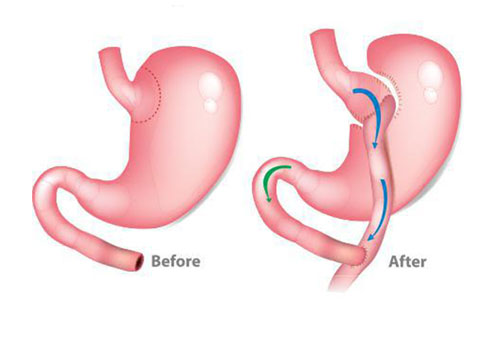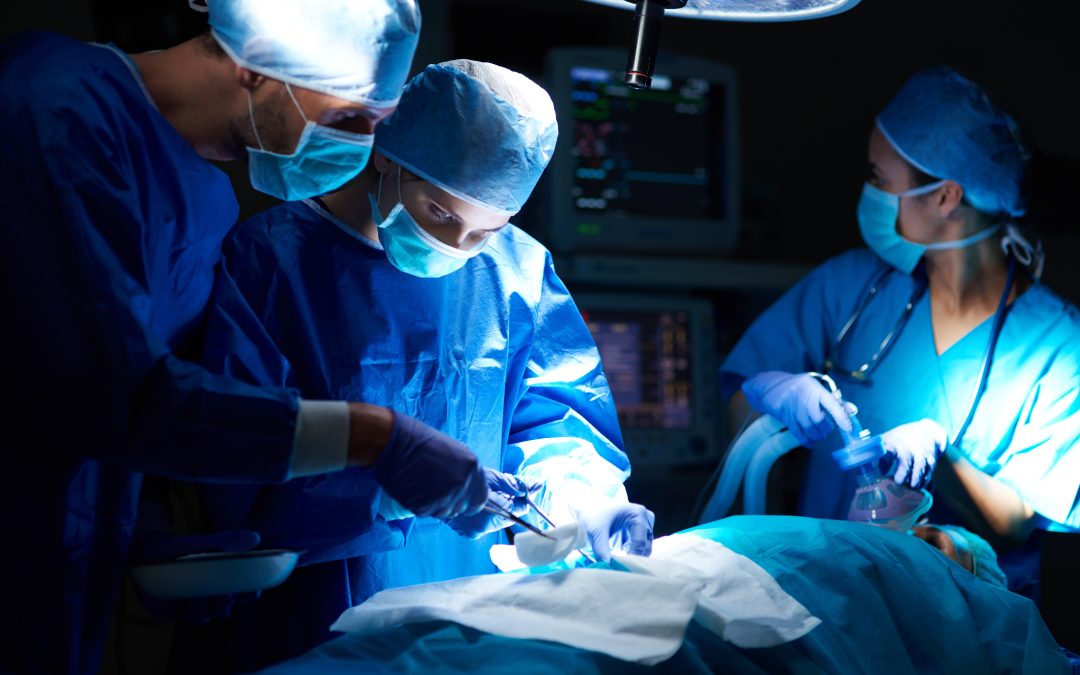Best gastric bypass surgeon in delhi
What is Gastric Bypass Surgery ?
Gastric Bypass Surgery separates the top part of your stomach to create a pouch about the size of a small egg. The surgeon attaches the pouch to your small intestine. This bypasses most of your stomach and upper intestine. The procedure, also known as a Roux-en-Y gastric bypass, is almost always done with a minimally invasive laparoscope. This fiber-optic instrument requires only small incisions. We offer the Best Gastric Bypass Surgery in Delhi by Dr. Sukhvinder Singh Saggu

How is Gastric Bypass Surgery done?
The surgeon makes a small stomach pouch – about the size of an egg – by dividing the top of the stomach from the rest of the stomach. Then, the small intestine is divided, and the bottom end of the divided small intestine is brought up and connected to the newly created small stomach pouch.
In the end, the top portion of the divided small intestine is connected to the small intestine further down so that the stomach acids and digestive enzymes from the bypassed stomach and first portion of your small intestine will eventually mix with the food.
Advantages of the Gastric Bypass Surgery
- Very good short term weight loss (60 to 80 percent excess weight loss)
- Lasting, long term results. The data show that up to 20 years after surgery, most patients maintain more than 50 percent of their excess weight loss.
- Excellent resolution of obesity-related health problems
- It does not require a foreign object in the body, as gastric banding does.
- It can be an effective long-term treatment for Type 2 diabetes and acid reflux disease.
Risks and potential side effects of Gastric bypass Surgery
- Gastric bypass is more complex than other bariatric surgeries, so more short-term complications are possible. These include leaking from intestinal connections, blood clots, bleeding, pneumonia and infections.
- A few patients develop dumping syndrome, when food moves too quickly through the digestive system. This can lead to nausea, vomiting and diarrhea but usually goes away within a few months. This condition is also less common than many patients fear.
- Long-term complications may include hernias, ulcers, and narrowing of the intestinal connections.
- Gastric bypass can cause vitamin and mineral deficiencies. Patients must take supplements and follow dietary recommendations for the rest of their lives.
- The surgery typically is not reversible.
For more information & consultation on Gastric Bypass Surgery in Delhi, Meet Dr. Sukhvinder Singh Saggu.
Successful Gastric bypass Surgery by Dr Saggu
5 days experience after Mini Gastric Bypass
Restoring life through gastric bypass surgery
Gastric Bypass Surgery Blogs

Complications, Risks and Side Effects of Gastric Bypass Surgery after 15 yrs
by Dr. Sukhvinder Singh Saggu | Sep 28, 2023 | Bariatric Surgery, Blog, Gastric Bypass Surgery
Are you obese and tired of trying dieting, exercising, or herbal products bringing no results in losing stubborn fat? Gastric bypass surgery is a type of weight loss surgery, also known as "Roux-en-Y", is a surgical procedure that helps lose excess weight and improve...

Complications, Risks and Side Effects of Gastric Bypass Surgery after 15 yrs
by Dr. Sukhvinder Singh Saggu | Sep 28, 2023 | Bariatric Surgery, Blog, Gastric Bypass Surgery
Are you obese and tired of trying dieting, exercising, or herbal products bringing no results in losing stubborn fat? Gastric bypass surgery is a type of weight loss surgery, also known as "Roux-en-Y", is a surgical procedure that helps lose excess weight and improve...
Frequently Asked Questions
-
What happens 10 years after gastric bypass?
Ans. Older people may experience vitamin deficiencies, gastric stenosis, mediastinal pouch migration, or worsened gastroesophageal reflux disease. Nevertheless, patients who undergo gastric bypass surgery can still experience success even a decade later.
-
Why can’t you eat rice after a gastric bypass?
Ans. Eating starchy foods such as fried potatoes, rice, and pasta can lead to bloating, gas, and discomfort in some people. It is recommended to limit rice consumption, as it is a refined carbohydrate that lacks nutrients and can be difficult to digest after surgery.
-
What is the life expectancy after gastric bypass?
Ans. According to medical research, people who have undergone bariatric surgery for obesity typically live about three years longer on average compared to those who had traditional obesity treatment.
-
What is the best food after sleeve bypass?
Ans. Consume high-protein foods and incorporate small portions of soft vegetables and carbohydrates. Foods that are soft and pureed, such as eggs, ground meats, fish, beans, cooked vegetables, and soft fruits, are great options. It is advisable to avoid consuming alcoholic and carbonated beverages for a better overall diet.
-
How permanent is a gastric bypass?
Ans. Gastric bypass is a highly effective method for achieving substantial and lasting weight loss, and it may offer relief from acid reflux and adult-onset diabetes.
